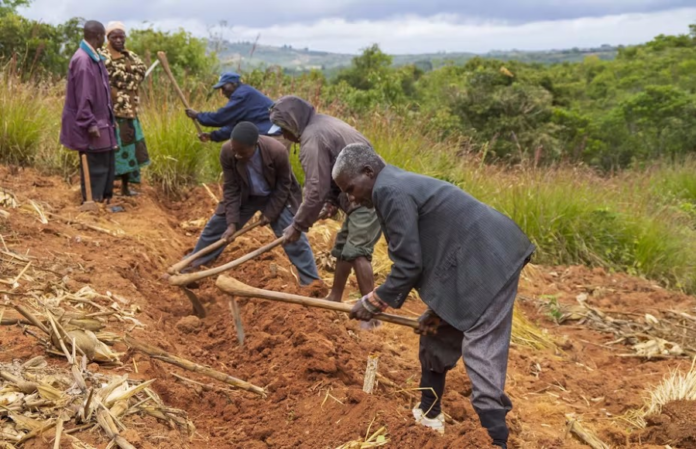The research conducted by Alan Dixon, Professor of Sustainable Development, University of Worcester examine that Malawi is facing significant agricultural challenges due to increasingly unpredictable rainfall and higher-than-average temperatures. These climatic changes exacerbate soil erosion, leading to decreased soil fertility and water availability, which in turn causes frequent crop failures. This is a critical issue for smallholder farmers, who constitute about 80% of the population and rely heavily on farming, primarily maize, for their livelihood. These farmers often cannot afford chemical fertilizers, which are essential for maintaining soil fertility and crop yields.
Research Overview
To address these challenges, the team of soil fertility and sustainable development specialists, in collaboration with sustainable agriculture and environmental researcher Augustine Talababie Phiri, conducted an experiment to improve soil fertility using natural methods. The goal was to discover how different combinations of plants could enhance soil fertility without the need for expensive fertilizers.
The author conducted trials on farms in northern Malawi, specifically in Msongwe near Mzuzu, over a two-year period. The trials involved testing various combinations of crops grown together and measuring the resulting changes in soil fertility.
Key Findings
Traditional Farming vs. Innovative Techniques
Traditional farming in Malawi typically involves tilling the soil annually and planting a single crop on narrow ridges. These ridges, however, are highly susceptible to soil erosion, which degrades soil quality and reduces crop yields.
Deep Bed Farming and Intercropping
The author explored the benefits of combining two innovative techniques: intercropping and deep bed farming.
- Intercropping: This method involves growing two or more crops side by side. For our experiment, we intercropped maize with legumes such as cowpea and pigeon pea. Legumes have the ability to fix nitrogen from the atmosphere, converting it into forms (like ammonium and nitrate) that plants can use as natural fertilizers.
- Deep Bed Farming: This technique, developed in Malawi, involves breaking up the compacted soil layer (hardpan) near the surface, which hinders root growth. By using a pickaxe to dig through this layer, farmers create deeper beds that allow roots to grow more freely. Additionally, seedlings are planted on soil piles 30cm higher than the ground level, with ditches dug beside these beds to catch and retain rainwater, ensuring the soil remains moist for extended periods.
Results
The research demonstrated several significant benefits of combining intercropping with deep bed farming:
- Enhanced Soil Fertility
- The nitrogen-fixing ability of legumes enriched the soil more effectively than traditional chemical fertilizers.
- Deep bed farming further improved soil fertility by preventing erosion and maintaining soil structure, leading to sustained fertility over the two growing seasons.
- Increased Crop Yields
- Intercropping with legumes resulted in higher maize yields compared to fields planted with maize alone.
- The combination of intercropping and deep bed farming produced even better results, with significantly higher yields across both growing seasons.
- Cost-Effective and Sustainable Farming
- This method reduces farmers’ reliance on expensive chemical fertilizers, making farming more sustainable and economically viable.
- Higher crop yields mean farmers can produce more food on the same amount of land, improving food security and nutrition.
- Environmental Benefits
- Deep bed farming reduces soil erosion and compaction, improving the soil’s ability to retain water, which is crucial in drought-prone areas like Malawi.
- The natural nitrogen-fixing process of legumes reduces the environmental impact of farming by minimizing the need for synthetic fertilizers.
Conclusion
The combination of deep bed farming and legume intercropping offers a promising solution to the agricultural challenges posed by climate change. By improving soil fertility, increasing crop yields, and reducing reliance on chemical fertilizers, this method enhances the resilience and productivity of farming systems. As climate change continues to affect agriculture globally, innovative approaches like this will be essential in developing sustainable and robust agricultural practices.
















 The African Research (AR) Index is a comprehensive scholarly directory and database focused explicitly on journal publishers that publish and disseminate African research.
The African Research (AR) Index is a comprehensive scholarly directory and database focused explicitly on journal publishers that publish and disseminate African research.

